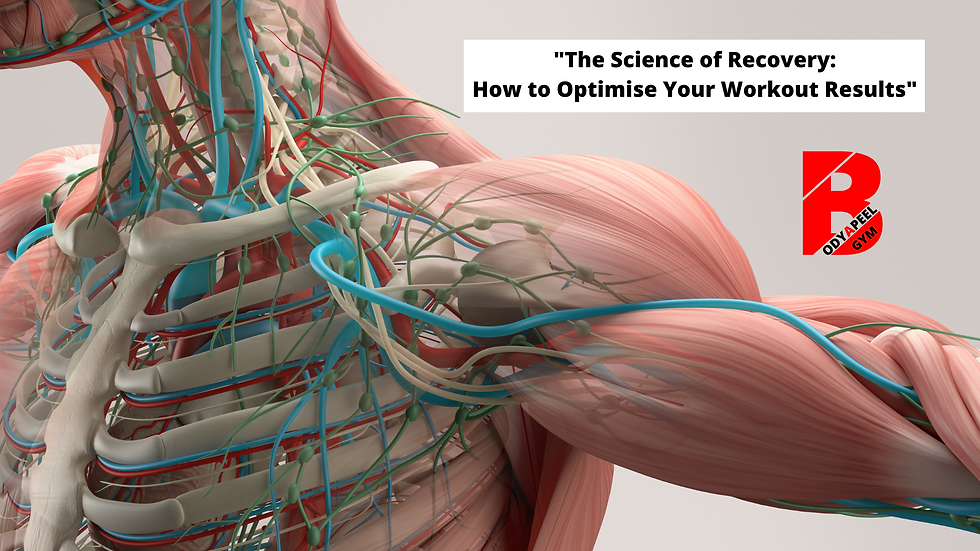Building Muscle on a Vegan Diet
- Bodyapeel Gym

- Jan 16, 2023
- 3 min read

Table of Contents:
Introduction
The Benefits of a Vegan Diet
Common Misconceptions
Essential Nutrients for Muscle Building
Meal Planning and Sample Meal Ideas
Supplements
Summary
Introduction
A vegan diet is a plant-based diet that excludes all animal products, including meat, dairy, and eggs. Many people believe that it is difficult to build muscle on a vegan diet, but this is not necessarily true. With the right meal planning and supplementation, it is possible to achieve muscle-building goals while following a vegan diet. This guide is designed to provide information on how to build muscle on a vegan diet, including the benefits, common misconceptions, essential nutrients, meal planning, and supplement options.
The Benefits of a Vegan Diet
A vegan diet can offer several health benefits, including:
Lower risk of chronic diseases: A vegan diet is high in fiber, antioxidants, and phytochemicals, which can help to reduce the risk of chronic diseases such as heart disease, diabetes, and cancer.
Weight management: A vegan diet can help to promote weight loss and maintain a healthy weight.
Lower environmental impact: A vegan diet requires less water, land, and other resources to produce, making it more environmentally friendly.
Common Misconceptions
Some common misconceptions about building muscle on a vegan diet include:
A vegan diet is not sufficient for muscle building: With the right meal planning and supplementation, it is possible to get all the essential nutrients needed for muscle building on a vegan diet.
A vegan diet is low in protein: There are many plant-based sources of protein, such as legumes, nuts, and soy-based products, that can provide the necessary amounts of protein for muscle building.
Essential Nutrients for Muscle Building
For muscle building, it is important to consume adequate amounts of:
Protein: Plant-based sources of protein include legumes, soy-based products, nuts, and seeds.
Iron: Plant-based sources of iron include leafy greens, fortified cereals, and legumes.
Calcium: Plant-based sources of calcium include fortified plant milks, leafy greens, and fortified orange juice.
Vitamin D: Vitamin D can be obtained from fortified foods or supplements, as well as from safe sun exposure.
Creatine: Creatine is not found in significant amounts in plant-based foods and may need to be obtained through supplements.
Meal Planning and Sample Meal Ideas
When building muscle on a vegan diet, it is important to focus on consuming enough protein, iron, and other essential nutrients. Some sample meal ideas include:
Breakfast: Tofu scramble with spinach, mushrooms, and tomatoes, served with whole-grain toast
Lunch: Lentil and vegetable soup with a mixed green salad and whole-grain bread
Dinner: Black bean and sweet potato enchiladas with avocado salsa and brown rice
Snacks: Roasted chickpeas, hummus and veggies, or a protein smoothie made with soy or pea protein powder
Supplements
While it is possible to obtain all essential nutrients for muscle building on a vegan diet, some individuals may choose to use supplements to ensure they are getting enough of certain nutrients, such as:
Protein powders: Soy, pea, and rice protein powders are plant-based options for increasing protein intake.
Creatine: Creatine supplements can be a good option for vegans looking to increase their creatine intake.
Iron: Iron supplements can be helpful for those who have difficulty getting enough iron from their diet.
Vitamin B12: Vitamin B12 is not found in significant amounts in plant-based foods and may need to be obtained through supplements.
Summary
Building muscle on a vegan diet is possible with the right meal planning and supplementation. A vegan diet offers several health benefits, including lower risk of chronic diseases, weight management, and lower environmental impact. It is important to focus on consuming enough protein, iron, and other essential nutrients, and to consider supplements if needed. With a balanced vegan diet, and proper exercise plan, you can achieve your muscle building goals. Consult with a dietician or nutritionist for personalized guidance for your specific needs.






Comments